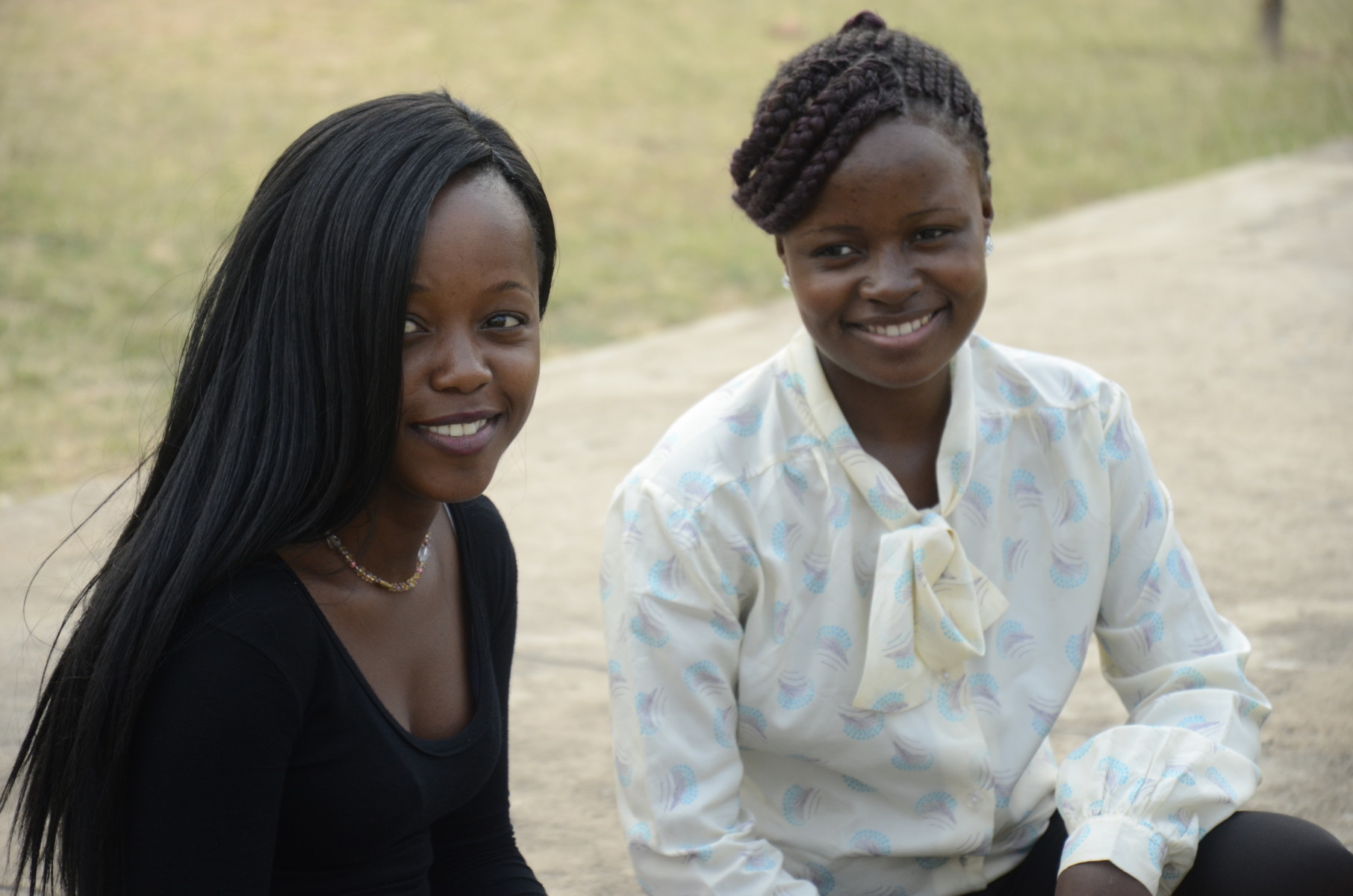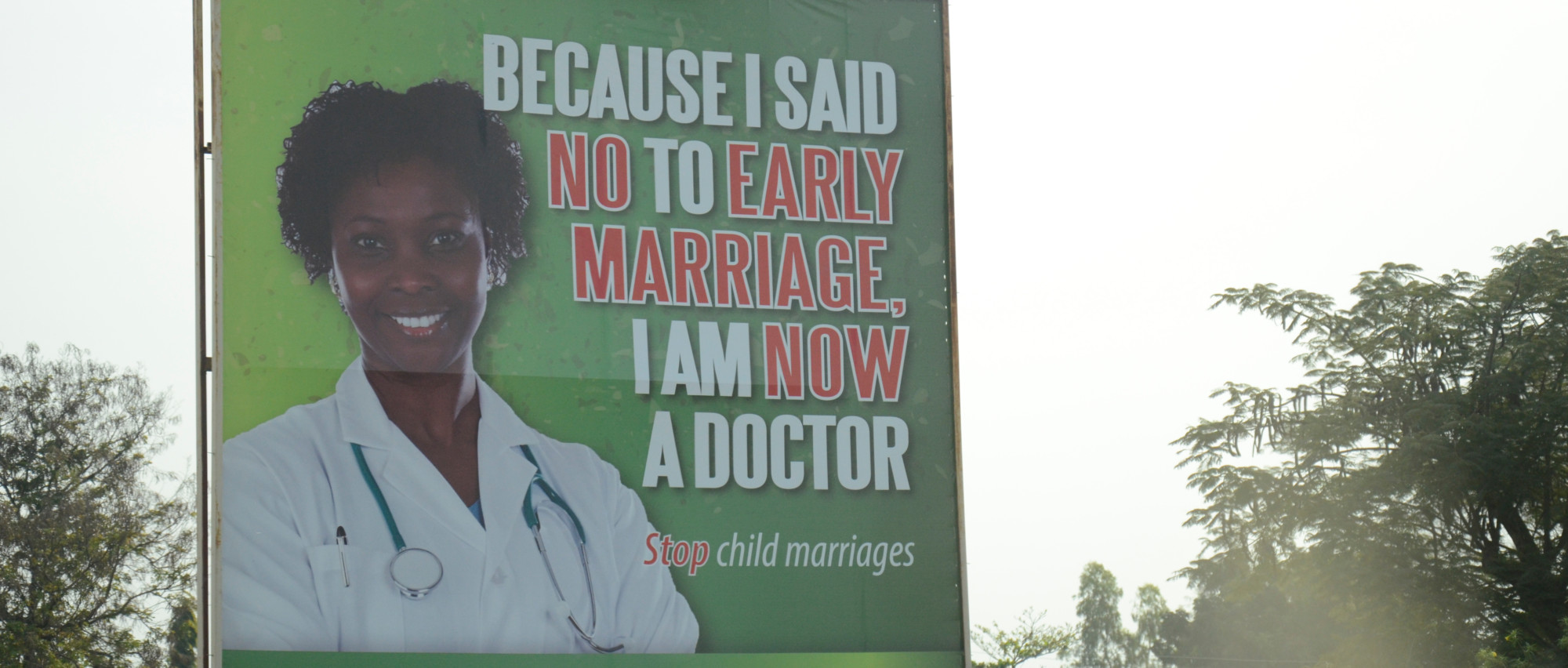Enala Ngulu lives in Karonga, in rural Malawi. She lost both her parents when she was only 8 years old. At the age of 13 she was married to a man of 47. He had two other wives. At a time when she should have been in school, learning about the world and how to make a contribution as a young woman, she was forced to grapple with adult responsibilities such as a marriage, a household and child bearing. By 15 Enala had her first child. She subsequently had five more daughters. Then her life took a surprising turn.
As her girls progressed to school age, Enala returned to school herself and enrolled in primary school at 29 with six children. She was bullied by fellow students and teachers, facing stigmatisation because of her age. She successfully completed the primary school cycle and was admitted to secondary school. There was something else which she was determined about. That was to keep all six of her daughters in school and support the completion of their schooling without their being forced into marriage, as she was.
It is a testimony to Enala’s resilience and determination that she continued her studies and completed the Malawi School Certificate of Education in 2012. She is now employed by the Foundation for Community Support Services (FOCUS) as a Field Officer in Karonga. Her desire is to further her education and complete the Gender Programme at Mzuzu University in Malawi.
Enala holds the very firm view that girls like her, married off at a young age, should not be forgotten. She says they deserve a second chance to shape their futures. Enala advocates the reintegration of child brides into school, and she urges governments and school authorities to prevent the bullying of girls at schools, who are overcoming formidable hurdles to access their right to education.
A massive human rights challenge
Child marriage is a harmful practice that violates the rights of women and girls. Around 375 million women alive today were married or partnered before their 18th birthdays. In the Commonwealth, that amounts to 52% of women aged more than 18 years of age. Approximately 8.8 million Commonwealth women are married as children every year. That adds up to 24,000 girls every day or 17 girls every minute.

Number of Commonwealth women married as children every year.
Commonwealth leaders have made strong commitments to prevent and eliminate child marriage through successive Heads of Government Meetings, and we believe national human rights institutions (NHRIs) are our key allies in this fight. A 2017 report from the Office of the High Commissioner for Human Rights supports this belief.
The Commonwealth Secretariat first acknowledged the role of NHRIs in 2013. It was an outcome of the Commonwealth Roundtable on Child, Early and Forced Marriage (CEFM), and it facilitated the adoption of the Kigali Declaration in 2015. That declaration represents a united stand on child marriage. It sets out a framework of 17 actions that NHRIs can take forward to end the practice.
In 2015-2017 we kept fighting for girls’ and women’s rights
Watch: Putting a stop to child marriage in the Commonwealth
In addition to working with NHRIs, from 2015 to 2017 the Secretariat continued to assist countries with preparations for their Universal Periodic Review (UPR) processes. In 2016/17 we supported six countries with this (Antigua and Barbuda, Papua New Guinea, Saint Vincent and the Grenadines, Samoa, Swaziland and Tanzania). The year before, we advised five: Antigua and Barbuda, Papua New Guinea, Saint Vincent and the Grenadines, Samoa and Swaziland. Meanwhile Mauritius responded to a previous UPR recommendation by successfully piloting and adopting the Human Rights Education Curriculum with Secretariat support. They rolled it out in all schools in 2016.
Further progress with human rights
We continued to promote the 2015 Kigali Declaration. NHRIs in 20 Commonwealth countries have now adopted it and committed to strengthen and calibrate their efforts to prevent and eradicate CEFM. In Malawi, where CEFM is now banned, we helped establish the National Caucus of Chiefs in Malawi to mobilise traditional leaders to prevent and eliminate the practice.
We saw Commonwealth regional parliamentary human rights groups formed in the Pacific following the adoption of the 2015 Pipitea Declaration by six members (Australia, Kiribati, New Zealand, Samoa, Tonga, and Tuvalu). Such groups were also formed in Asia following the adoption of the 2016 Kotte Declaration by six members (Bangladesh, India, Malaysia, Maldives, Pakistan and Sri Lanka)
These groups follow the existing Caribbean and African regional groups in promoting inter-parliamentary co-operation – they ensure better practices and strengthened parliamentary engagement with the UPR and further efforts to promote and protect human rights.
Then, in 2017, the Secretariat convened the Commonwealth Parliamentary Conference on the Rule of Law and Human Rights, in London. This was in co-operation with the Commonwealth Parliamentary Association, the UK Joint Committee on Human Rights and the Commonwealth Human Rights Initiative. Parliamentarians from 12 member countries attended and they committed to actions including:
- strengthening the protection of human rights and the rule of law through the effective use of parliamentary tools
- promoting the independence and sustainability of NHRIs
- taking forward their responsibilities in raising awareness of and engaging with human rights norms and mechanisms, including the UPR.
The referenced 2016 Kotte Declaration differs from the 2013 Kotte Statement on International Trade and Investment. The Kotte Declaration commits parliamentarians to a set of actions that promote and protect human rights.
The Commonwealth is a champion of democracy, freedom, sustainable development, the rule of law, and human rights, especially the rights of women and girls. As a member of the Commonwealth, Canada remains committed to protecting and promoting these values. – Prime Minister of Canada, Justin Trudeau

